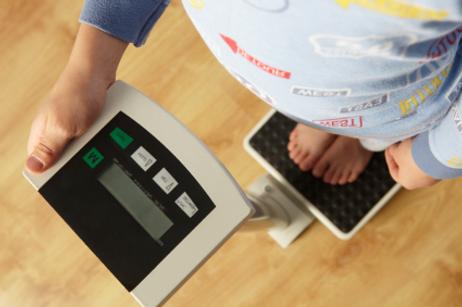With the startling rise in obesity among young children, many schools are striving to combat issues of weight and poor health by enforcing new dietary restrictions. For example, some schools are creating workout and wellness plans that help students lose weight through fun activities. Similarly, some schools are prohibiting their cafeterias from selling certain types of foods to prevent poor eating habits.
Ultimately, while all can agree that children are best served when they are at their optimal health and physical size, many individuals assert that the schools鈥� new focus on weight can lead to an array of mental and personal issues in young kids.
The Obesity Issue
According to reports, approximately 1 in 3 kids is considered to be overweight or obese. As the percentage of overweight children continues to rise at a startling rate, leaders are striving to seek out solutions to this serious crisis. According to , children today are spending less time playing outdoors and engaging in physical activities due to the new appeals of technology, video games, and television. Subsequently, children are becoming lethargic, lazy, and large. Adding to the change in children鈥檚 activities, Kids Health further asserts that busy parents no longer have the time to prepare healthy and balanced meals: 鈥淔rom fast food to electronics, quick and easy is the reality for many people in the new millennium.鈥�
This video suggests that school lunches and too much TV time play a role in childhood obesity.
Is Your Child Overweight?
The determining factor that indicates if a child is obese is a calculation called a 鈥淏MI.鈥� A BMI, or Body Mass Index, is a number that reveals an individual鈥檚 overall body fat in relation to his or her height and general size. To calculate this BMI, an individual鈥檚 weight (kg) must be divided by an individual鈥檚 height (meters squared). Alternatively, parents can simply search the internet for a BMI Calculator, as these tools are widely available on an array of websites. Once your child鈥檚 BMI is calculated, your child will fall into 1 of 4 categories:
- Underweight 鈥� BMI below the 5th percentile
- Normal 鈥� BMI at the 5th to the 85th percentile
- Overweight 鈥� BMI at the 85th to the 95th percentile
- Obese 鈥� BMI at or above the 95th percentile
While a child鈥檚 BMI may not be a perfect calculation of his or her body composition, as some children experience odd weights and heights during growth spurts, the BMI can generally help to inform parents as to whether or not their child may need additional medical or nutritional support.
Schools and Obesity
In an effort to combat the many issues related to childhood obesity and problems associated with being overweight, public schools across the country are experimenting with new programs to stimulate enhanced health for their students. For example, as reports, Massachusetts public schools are beginning to send home 鈥渨eight reports鈥� to inform a child鈥檚 parents of whether or not a child weighs too much or too little. Based on a model developed by schools in Arkansas and New York City, early childhood obesity screenings are intended to provide both parents and children with greater awareness, information, and preventative support.
In addition to weight assessments, many schools are prohibiting the consumption of sodas and certain types of junk foods in schools, as it impacts how children learn. As students today consume more sugary beverages and less water, students are arriving at school dehydrated, distracted, and unable to concentrate. Adding to the mental impacts of these sugary sweets, soda, and junk food consumption also adds to the problems of a child鈥檚 waistline. As a result, school leaders are taking a closer look at what students are eating, and they are refining rules to enforce what can and cannot be consumed on school grounds.
This video from Boston Children's Hospital offers 10 causes of childhood obesity.
The Implication of Young Dieting
According to , children even as young as 9 years old are now reportedly embarking on diets due to experiencing harsh teasing and taunting at school. Although many young kids who feel the need to go on diets are actually of normal weight, psychologists at Leeds University estimate that 21 percent of girls and 16 percent of boys who are of primary school ages are teased for being overweight. This experience results in an overall decrease in self-esteem and confidence. In fact, 20 percent of the Leeds University surveyed students reported that they have been bullied because of their physical size and shape; in reality, however, only a small percentage of the 383 taunted children were actually clinically overweight or obese.
This video looks at obesity and bullying.
According to experts, a school鈥檚 focus on diet, weight loss, and appearance may be one of the many factors that are contributing to this bullying and harassment. As The Independent further explains, 鈥淪uch an early initiation into the diet culture can act as a trigger for eating disorders including excessive weight control and bulimia.鈥� Considering that weight is now a new focus for our schools and young children, experts assert that parents must take immediate intervention steps if they feel their child is struggling or being taunted. As Kids Health further asserts, any parents who are concerned about their child鈥檚 health or issues with weight should make an appointment with their child鈥檚 doctor. A medical expert can help provide a parent and a child with tools, tips, and resources to help boost a child鈥檚 both physical and mental wellbeing.
Questions? Contact us on Facebook. @publicschoolreview









